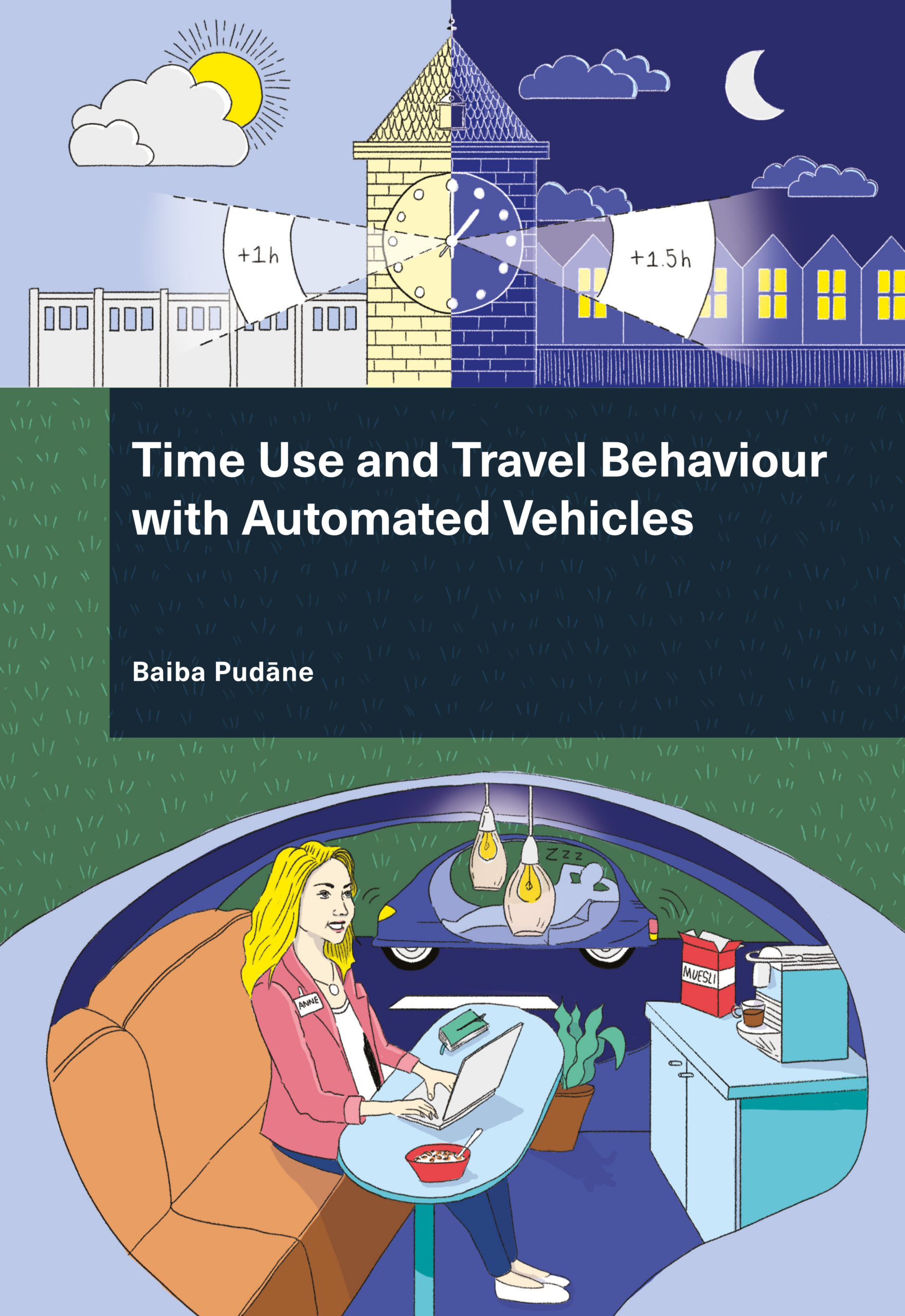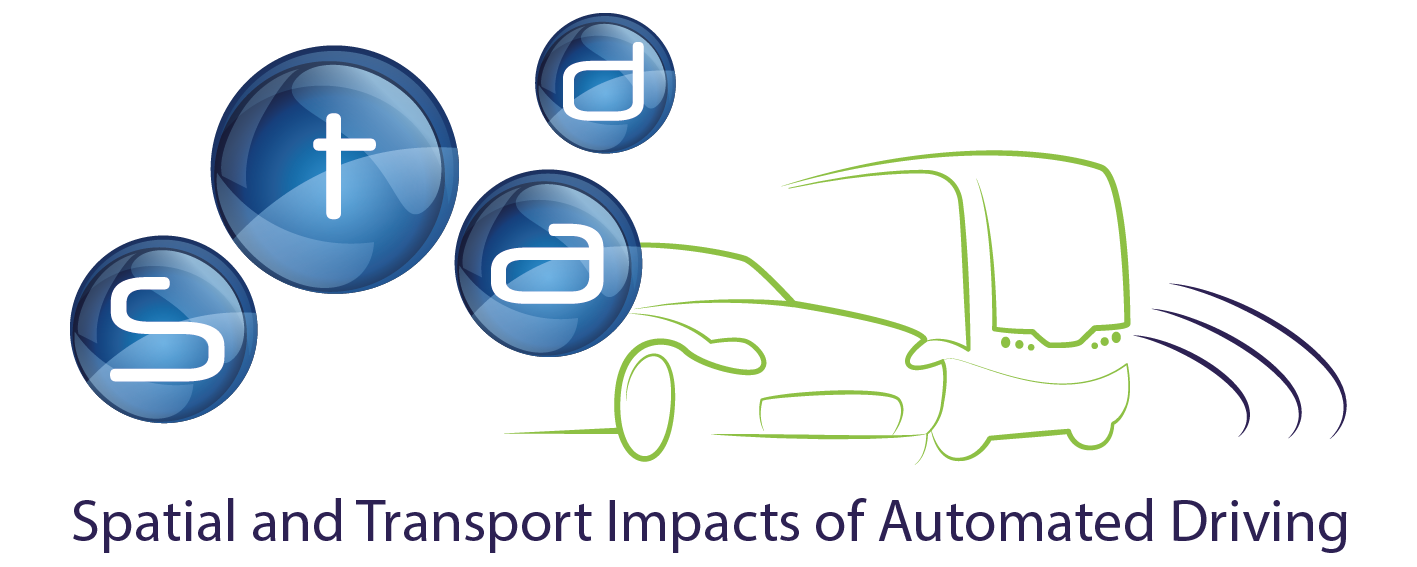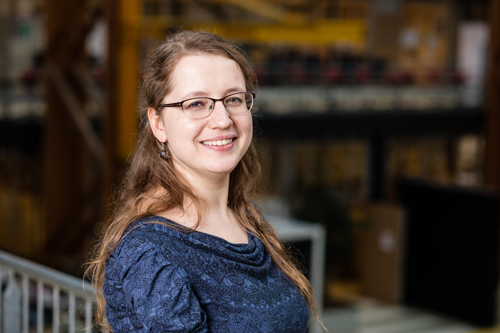For SP1 the following research objectives have been identified. Many untested expectations exist, regarding the medium- and long-term impacts of AD on mobility and spatial behaviour. The most important ones are the following:
- AD is expected to have a strong impact on drivers’ activity-travel patterns: the ability to multitask while driving is likely to impact peoples’ scheduling of activities, and cause a decrease in their value of travel time (VoT).
- AD is expected to result in stronger competition for Public Transport (PT), due to expected reductions in car traffic congestion (caused by capacity effects of AD); as well as to the decrease in car drivers’ value of travel time.
- AD is also expected to offer new opportunities for PT: by automating the entire PT-chain, or some of its components, operational costs (and hence fares) may be decreased and user flexibility increased.
- AD is expected to change preferences for residential and working locations: living further away from work becomes feasible when, due to AD, congestion lessens and travel time can be used more productively.
The goal of this subproject is to put these theoretical expectations to the test empirically, and to do so in an integrative manner, i.e., considering all potential effects within one coherent empirical framework. The result is a quantitative, integrative and empirical assessment of the medium- and long-term impacts of AD on mobility and spatial behaviour.
Baiba Pudāne is working at the TU Delft on this workpacage in cooperation with Caspar Chorus, Sander van Cranenburgh & Theo Arentze.
 | Baiba Pudāne’s PhD thesis can be read here: Time Use and Travel Behaviour with Automated Vehicles |


